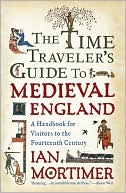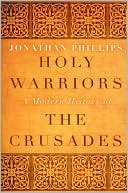The First Horseman: Diseases in Human History
This text intends to emphasis to students that widespread, deadly disease is not a distant historical phenomenon, but a continuing threat to humanity. It explains the economic, political, social, and psychological problems that deadly diseases have caused in our past and the challenges we face currently and in the future. The importance of this study is emphasized by the author's last line in the text, "The history of disease will go on, despite once confident predictions of an end to...
Search in google:
This text intends to emphasis to students that widespread, deadly disease is not a distant historical phenomenon, but a continuing threat to humanity. It explains the economic, political, social, and psychological problems that deadly diseases have caused in our past and the challenges we face currently and in the future. The importance of this study is emphasized by the author's last line in the text, "The history of disease will go on, despite once confident predictions of an end to epidemics in our times, and those who now wage the heroic struggle to find elusive cures to our new plagues may find that they have more to learn from the past than had once been thought."
Chapter 1: IntroductionChapter 2: A Eurasian Pandemic: The Black Death in Europe and the Middle East, 1347-1350A: The Societal Impact of the Black Death in Italy Giovanni Boccaccio, Introduction to The Decameron, 1349-1351B: Scapegoating & Jewish Pogroms during the Black Death in Germany Konrad of Megenberg, Treatise concerning the Mortality in Germany, 1350C: Religious Responses to the Black Death in Muslim Spain and Syria Ibn al-Wardi, Essay on the Report of the Pestilence, c. 1348Lisan al-Din Ibn al-Khatib, A Very Useful Inquiry into the Horrible Sickness, 1349-52[1 map of spread of Black Death from Asia to Europe and 1 illustration, of Jewish pogrom.]Chapter 3: American Holocaust: Smallpox in the Americas, 1518-1670A: Disease and the Conquest of Mexico Toribio de Benavente Motolinia, History of the Indians of New Spain, 1536-41Benardino de Sahagun,Florentine Codex: General History of the Things of New Spain, 1585B: Disease and the Colonization of New England William Bradford, History of Plymouth Plantation, 1633-34C: Disease and the Colonization of New France Charles Albanel, Jesuit Relation of 1669-70[1 illustration, from Florentine Codex.]Chapter 4: Disease and the Birth of Modern Medicine: Bubonic and Pneumonic Plague in India and China, 1896-1922A: Bubonic Plague in Pune, India: The Native Response Newspaper Reports, February-September 1897B: Bubonic Plague in Pune, India: The Official Response Letter from Major W.C. Reade to Sir Arthur Godley, March 3, 1898Indian Plague Commission, Minutes of Evidence, February 24, 1899C: Pneumonic Plague in Harbin, Manchuria Wu Liande, North Manchurian Plague Prevention Service Reports, 1918-1922[2 illustrations, from Wu Liande.]Chapter 5: A Modern Plague: AIDS in sub-Saharan Africa, 1981 to PresentA: AIDS in Uganda: A "Multisectoral" Approach Yoweri Museveni, AIDS is a Socioeconomic Disease, 1991B: AIDS in South Africa: The Tragedy of Denial Thabo Mbeki, Letter to World Leaders, April 3, 2000C: Voices of AIDS: The Disease's Impact upon Women and Children Two Women's Stories: Mary Banda of Zambia and Dambudzo of ZimbabweTwo AIDS Activists: Speeches of Rosemary Mulenga of Zambia and Nkosi Johnson of South Africa[1 map of AIDS prevalence in Africa and 1 illustration, of AIDS billboard.]Chapter 6: Epilogue








